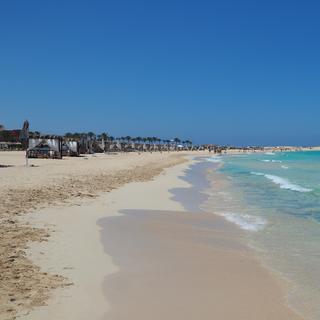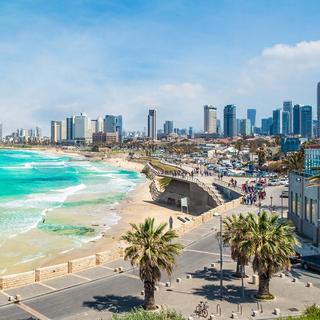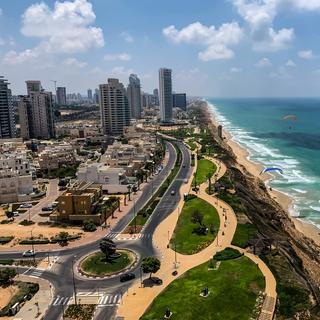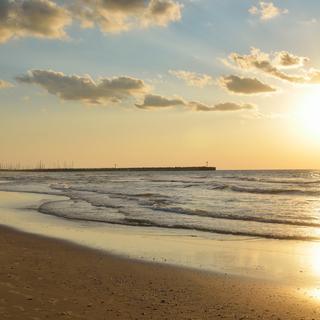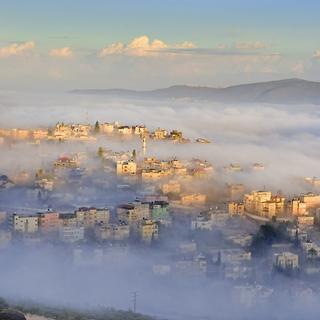
Haifa weather and climate

Haifa weather and climate
Day
31 °C
Night
23 °C
Sea
28 °C
Precipitation
0 mm
in month
Rainy days
0 days
in month
Daylight
13 hours
average
Sunshine
11 hours
average
Humidity
67 %
Weather charts for Haifa

Find more destinations like this
Destinations with similar weather to Haifa
Other destinations in Israel
Closest cities for Haifa
Last week's weather in Haifa
Average daily temperature during the week of 30 June 2025 - 6 July 2025 was 30 °C (86 °F), average minimal (night) temperature was 23 °C (73 °F). The current temperatures are roughly same as the long-term average for Haifa, with the daily and nighttime temperatures being 30 °C (86 °F) and 21 °C (70 °F), respectively. The average temperatures during different times of day (local time) were following: 7am 25 °C (77 °F), 10am 29 °C (84 °F), 1pm 30 °C (86 °F), 4pm 29 °C (84 °F), 7pm 28 °C (82 °F), 10pm 26 °C (79 °F).
There were 7 days without rain during this week. The total precipitation for the week in Haifa was 0 mm (0.00 in), which is roughly same as the area's average of 0 mm (0.00 in). The daytime hours (from dawn to dusk) had an average cloud coverage of 15 %.
An average wind speed of 3.2 m/s was recorded. North-West and West were the dominant wind direction(s). The air pressure was 1002 hpa - 1011 hpa. The air in Haifa had an average humidity of 64 %.
During the daytime (from dawn to dusk), there were in average: 14 hours clear skies and 0.5 hours partially overcast skies. At 05:36, on average, the sun rose, and at 19:52, the sun set.
Weather overview for Haifa
Weather overview
The climate of Haifa in Israel is predominantly hot. Daytime temperatures typically vary from 17 °C (62 °F) in the chilly January to a peak of 31 °C (89 °F) in the sweltering month of August. At night, visitors can experience a significant contrast, with the coldest nights in January dipping to 9 °C (47 °F), while the warm nights of August reach up to 23 °C (73 °F). Precipitation varies significantly throughout the year, reaching its zenith in January with an average of 12 of rainfall, while barely registering in July with a mere 0 days of rain. In this detailed overview, we will explore a series of questions and answers that reflect the typical weather trends in Haifa, focusing on temperatures, rainfall, and sunlight hours without delving into specific meteorological data.
January weather
January in Haifa is characterized by the lowest daytime temperature, reaching up to 17 °C (62 °F), and the coldest nights, with temperatures dropping to 9 °C (47 °F). With 12 days of rain, it's the month with the highest rainfall. Sunlight hours are at their minimum, averaging around 5 hours.
February weather
As the February rain begins to diminish, Haifa sees its precipitation levels drop to 110 mm (4.35 in), and the number of rainy days decline to 11 days. The city starts to experience an increase in sunny hours, now averaging 7 hours.
March weather
With the onset of spring, Haifa begins to enjoy warmer day and night temperatures. The decline in rainy days continues, now totaling around 7 days, and rainfall volume is reduced to 53 mm (2.07 in). As days get longer, there is a rise in the number of sunny hours, now about 7 hours.
April weather
April's weather in Haifa signals the impending arrival of the tourist season. With a significant rise in day temperatures to 24 °C (75 °F) and night temperatures to 13 °C (55 °F), the area becomes increasingly attractive. Rainy days continue to decrease, now just 3 days. The number of sunny hours increases again, reaching 9 hours.
May weather
May heralds near-peak tourist season in Haifa, accompanied by a continual rise in day temperatures, reaching 27 °C (80 °F), and night temperatures averaging 16 °C (60 °F). Rainfall occurrence and volume descend further to 6 mm (0.25 in).
June weather
June's climate in Haifa hits close to peak tourist season with soaring day temperatures reaching 29 °C (85 °F). Rainfall becomes almost negligible, dropping to an astonishing 0 mm (0.00 in), making it a period of maximum sunlight exposure with the highest amount of sunny hours.
July weather
July sees the continuation of Haifa's summer with day temperatures climbing to 31 °C (87 °F) and night temperatures at a warm 23 °C (73 °F). Rain is virtually absent, with precipitation reaching the year's lowest point.
August weather
August in Haifa offers optimal conditions for visitors, with the day temperature peaking and night temperatures maintaining their warmth. While the sunny hours begin to decrease slightly, it remains a dry period with negligible rainfall.
September weather
September heralds the start of Haifa's gradual transition towards cooler weather, with day temperatures beginning to recede from their peak and night temperatures following suit. Nevertheless, the tourist season remains in full swing, and the decline in sunny hours is moderate.
October weather
October offers Haifa visitors a continuation of pleasant weather conditions, with day temperatures gently decreasing and night temperatures becoming cooler. The number of rainy days begins to ascend subtly, indicating the end of the peak tourist season.
November weather
In November, Haifa experiences a further descent in day temperatures and a more noticeable drop in night temperatures. Rainfall increases, but the wind speed is at its lowest, making for a relatively calm atmosphere leading up to winter.
December weather
December brings a further cool down in Haifa, with both day and night temperatures declining. Rainy days become more frequent, but the month does not fall within the traditional wet season, preserving some dry days throughout.
FAQs
During January, what are the expected temperatures in Haifa during the day and at night?
In January, expect daytime temperatures in Haifa to hover around 17 °C (62 °F), while nighttime temperatures can drop to as low as 9 °C (47 °F)
How does the February weather in Haifa vary from January?
In February, Haifa generally has less rain than January with precipitation decreasing to 110 mm (4.35 in) and rainy days dropping to 11 days, alongside an increase in sunshine hours up to 7 hours
What shifts in weather patterns occur in Haifa during March?
March in Haifa brings warmer temperatures both during the day and at night. Rainfall frequency lowers to 7 days, and precipitation drops to 53 mm (2.07 in). The increase in daylight hours results in more sun, averaging 7 hours per day.
What weather conditions can tourists expect in Haifa during April?
April in Haifa offers appealing weather for tourists, with day temperatures averaging 24 °C (75 °F) and night temperatures around 13 °C (55 °F). There's a low chance of rain with only 3 days of precipitation, and the sunny hours increase to 9 hours
How can the continued weather improvement in Haifa be described for May?
In May, Haifa sees a further climbing of daytime temperatures to 27 °C (80 °F), whilst nocturnal temperatures average 16 °C (60 °F). Rain becomes even rarer, with total rainfall decreasing to 6 mm (0.25 in).
What climatic patterns define June in Haifa?
June in Haifa presents optimal climate conditions with peak daytime temperatures of 29 °C (85 °F) and minimal rainfall measuring almost an inconsequential 0 mm (0.00 in).
How does Haifa's climate peak in July?
July in Haifa is synonymous with summer's zenith, showcasing maximum daytime temperatures around 31 °C (87 °F) and balmy nights at 23 °C (73 °F), while rain is typically absent.
Could you describe the climatic prime of August in Haifa?
Haifa in August epitomizes summer excellence with its highest day temperatures and warm nights. Rainfall is scant, ensuring largely uninterrupted sunnier spells.
What changes occur in Haifa's weather as summer wanes in September?
As September marks the end of summer, Haifa experiences a dip in both daytime and nighttime temperatures, but the tourist season continues, attracting visitors with its persistent warmth and ample sunshine.
What is the weather like in Haifa during the transitionary month of October?
October in Haifa is characterized by a gentle decline in temperatures and a slight increase in rain, as the region moves away from the peak of the tourist season.
How does November's weather foreshadow winter in Haifa?
November's cooling temperatures and increasing rainfall in Haifa suggest the approach of winter while maintaining generally mild and tranquil conditions.
Can December in Haifa be classified as part of its wet season?
Although rainfall rises in December in Haifa, it is not quite the onset of a wet season; expect some rainy days interspersed with dry weather.

